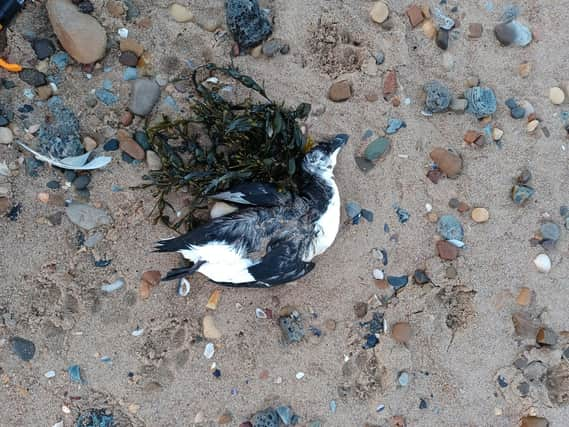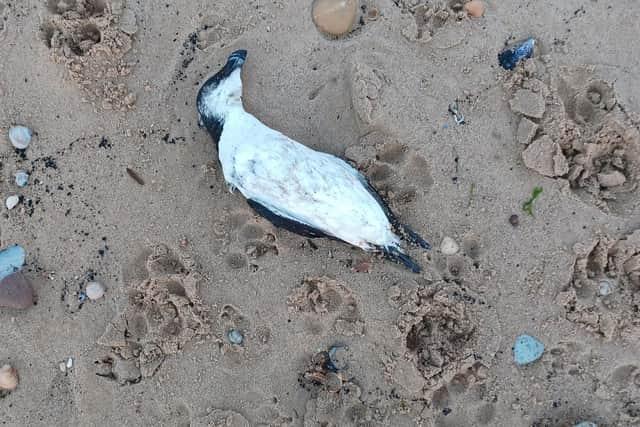‘Sad, worrying situation’ as high number of dead birds found on Hartlepool beaches


Hartlepool residents have been reporting a number of dead razorbills and guillemots spotted on the beach at Seaton Carew in recent days, with experts saying they have been observing “very unusual behaviour” among the birds, which are getting “desperate” in their search for food.
Local resident and environmental campaigner Geoff Lilley, 71, has said he has seen "close to 20” dead birds between the Norton Hotel and the North Gare over the past five days.
Advertisement
Hide AdAdvertisement
Hide AdHe said: "This has been sudden, almost like a click of a fingers.


"What worries me is the knock on effect for the marine environment as a whole.”
Wayne Birks, 34, also saw four washed up birds while on a walk with his family at Seaton on Sunday.
The father-of-two said: “They looked like they were exhausted. I think one was a razorbill.
"It’s not a usual thing to see.”
Advertisement
Hide AdAdvertisement
Hide AdThe UK Centre for Ecology & Hydrology (UKCEH) has ruled out avian flu as the possible cause for the deaths and its experts are now looking at the possibility of toxic poisoning.
Dr Francis Daunt, seabird ecologist at UKCEH, said: “We are seeing unprecedented numbers of guillemots dying for the time of year, over a huge area of the Eastern UK coast from Norfolk to Orkney.
"We are also seeing very unusual behaviour. Birds have been seen feeding very close to beaches in amongst swimmers, when normally they steer clear of people, and have been observed up to 20 miles up rivers, which is unheard of for this marine bird.
"These are signs that the birds are getting desperate in their search for food. The dead birds are little more than skin and bone with many half their usual weight, which is catastrophically low.
"So it appears that the birds are dying from starvation.
Advertisement
Hide AdAdvertisement
Hide Ad"This suggests that there is a lack of their fish prey in the sea, but people are seeing a lot of feeding flocks by our coasts at the moment, so perhaps starvation is being caused by something else.
"We have tested 10 birds for avian flu, all of which came back negative, and we are now looking at the possibility of toxic poisoning from algal blooms.”
Jacky Watson, wildlife coaster at Tees Valley Wildlife Trust, has described the situation as “worrying” with climate change factors and toxic poisoning among the possible causes of death.
She said: "When the birds come close to shore, they are more actively predates by seals and gulls.
Advertisement
Hide AdAdvertisement
Hide Ad“It’s a very sad, worrying situation. We’re keeping our eyes on it.”
In a statement, the Royal Society for the Protection of Birds said: “Extreme weather, pollution and disease can kill seabirds. If prey fish are scarce seabirds can be weakened through starvation.
"We don’t know the exact cause here, but we know climate change is driving prey fish numbers down in our seas and creating more extreme weather events.
The advice is not to touch the dead birds and to report sightings to Defra on 03459 335577.
